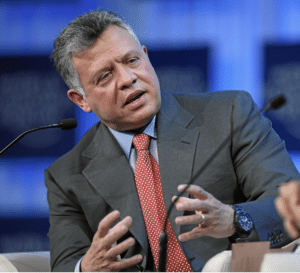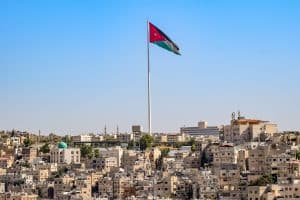On April 27th the Jordanian Social Democratic Party (JSDP) held its first general conference since the creation of the party in 2016. During the meeting a new central council of 57 members was elected and a number of amendments were adopted to the party statute. Central issues of the conference were the ‘Jerusalem question’ and the current situation of the Jordanian economy, among others. The party can be seen as part of a gradual shift in Jordanian politics in which political movements get more opportunities to organize themselves, though they still face many restrictions.
Key issues
JSDP’s first general party conference, that was chaired by secretary-general Jamil al-Nimri, focused on some pressing issues that had developed since the creation of the party. It was stated that the party has achieved noticeable unity along the lines of social democracy in a harsh political climate. A stagnating economy, a large number of refugees and wars in neighboring countries have plagued Jordan for the last couple of years. The party praised the Jordanian government for guiding the country in this difficult situation. Nonetheless the conference called upon the government to seek a more social dimension to these national problems. A lot of people are still left out according to the party. Another central issue during the conference was the condemnation of the United States decision to recognise Jerusalem as the capital of Israel.
Extra-parliamentary opposition
As an extra-parliamentary movement the party seeks cooperation with other movements in Jordan in order to set a more social agenda. In a report the party referenced the problematic Jordanian economy. The problems in the country has forced the government to reform the tax and subsidy system. As result food prices have risen, while Jordanians pay more taxes. The party wants to release the people from this growing tax burden with help from other parties.
Parties and movements like the JSDP drive the reform momentum in Jordan with some success. Since the 2013 political parties have more freedom in the still largely conservative monarchy. In 2017 the American NGO Freedom House rated Jordan for the first time as “partly free” instead of “Not free” as result of the somewhat free general elections in 2016.
Sources: Jordan Times JSDP Facebook*Images belong to the Jordanian Social Democratic Party


